I’ve been tracking public sector procurement patterns, and something significant is happening. While most people focus on individual contract wins, the real story lies in how organizations are buying construction services.
Between 2018 and 2023, framework usage jumped from 11% to 26% of total contract value. That’s billions redirected toward consolidated procurement vehicles.
Pagabo’s new £6 billion framework isn’t just another procurement exercise. It’s positioning for what comes next.
The four-year initiative, running April 2026 to April 2030, covers everything from new builds to complex developments across England, Wales, Scotland, and Northern Ireland. The timing reveals their strategy.
The Numbers
Over 1 in 4 public sector construction contracts were awarded via framework in 2024. Framework usage more than doubled in just four years.
Organizations are fundamentally changing how they buy construction services. The shift from project-by-project procurement to framework-based purchasing represents more than efficiency gains.
Pagabo’s approach reveals why they’re confident about this trend. They issued a prior information notice in early 2024, ran extensive market consultations, and scheduled pre-market engagement for October. The formal tender doesn’t even start until late 2025.
That’s unusual patience in a sector known for reactive procurement decisions.
Market Timing
The UK construction sector contracted 2.1% in 2024. But forecasts show 2.9% growth returning in 2025.
Pagabo positioned their framework to capture that recovery cycle. Four years of pre-vetted contractors, standardized processes, and streamlined procurement right as demand rebounds.
The smart money is already positioning.
What This Changes
For contractors, this represents a fundamental shift in how public sector work gets allocated. Framework inclusion becomes the gateway to serious opportunities, not just another option.
The game changes from winning individual tenders to securing framework positions. Get on the framework, access four years of potential work through direct awards or mini-competitions. Miss it, and you’re locked out until the next cycle.
Public sector organizations gain something equally valuable: procurement speed. Pre-vetted suppliers, established terms, and faster project initiation. The administrative burden shifts from every individual project to the framework selection process.
Scale
Pagabo already delivered 1,600+ projects worth over £5 billion. They’ve proven they can manage large-scale framework operations.
This £6 billion framework does more than facilitate construction projects. It establishes the template for how public construction procurement operates over the next decade.
The organizations preparing for framework-based procurement now will shape the market. Those adapting later will operate within structures others designed.
The transition is already underway. The question isn’t whether framework procurement becomes standard practice. It’s whether you’re positioned for what that means.
